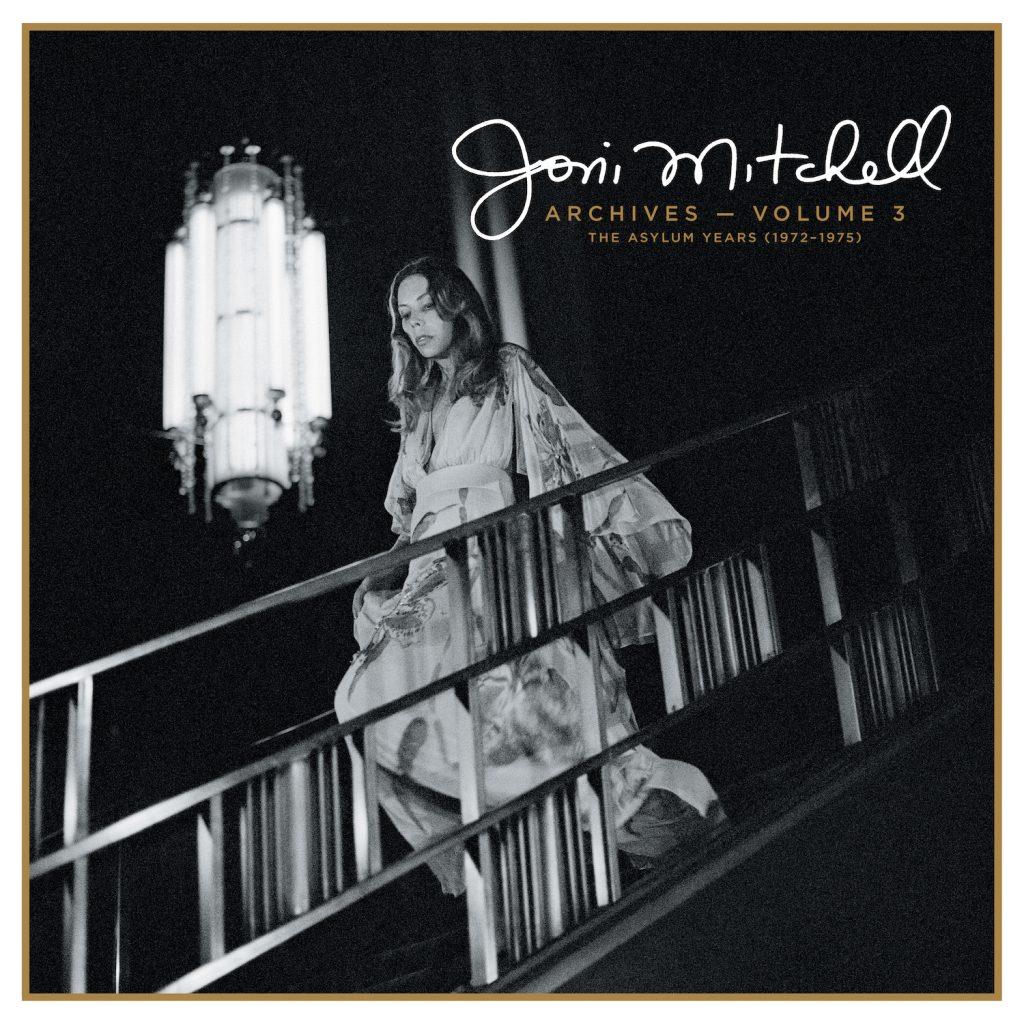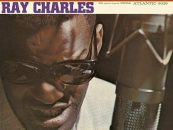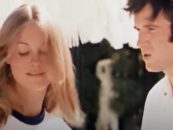Joni Mitchell’s ‘Archives, Volume 3’ Covers a Fruitful Era: Review
by Jeff Burger Like the first and second volumes of Joni Mitchell’s Archives series, which respectively focused on previously unreleased material from 1963-1967 and 1968-1971, the new third volume, which arrived Oct. 6, 2023, is a five-CD treasure trove. (There’s also a four-LP edition but you must love vinyl more than Joni to want to opt for it as it cuts the program back from 96 tracks to less than half that number.)
Like the first and second volumes of Joni Mitchell’s Archives series, which respectively focused on previously unreleased material from 1963-1967 and 1968-1971, the new third volume, which arrived Oct. 6, 2023, is a five-CD treasure trove. (There’s also a four-LP edition but you must love vinyl more than Joni to want to opt for it as it cuts the program back from 96 tracks to less than half that number.)
Joni Mitchell Archives, Volume 3: The Asylum Years (1972-1975)—which in its CD version has a playing time of just under six hours—includes a 40-page booklet with more of the illuminating conversation between Mitchell and journalist Cameron Crowe that appeared in the two earlier collections in this series. It features hitherto unheard recordings from a fruitful period that found the artist moving from Southern California to rural British Columbia and writing about her relationship to her work, her audience and the music industry, among other things. This is when she produced the classic For the Roses and Court & Spark, as well as the long-underrated The Hissing of Summer Lawns, all of which evidence a shift from the straightforward folk of her earlier years to more complex and ambitious compositions. (Remastered versions of those three original albums, plus the live Miles of Aisles, also recently appeared as a boxed set.)
There is no shortage of fascinating studio material here, including demos, outtakes and early and alternate takes from the sessions for all three of those studio LPs. Many of these seem as polished as what another artist might release as a final version, and some feature A-list guests. One reading of the lyrically deft “You Turn Me On I’m a Radio,” for example, includes harmonica and electric guitar by Neil Young and presents a dramatically different arrangement from the hit version. There’s also a reading of “For the Roses” from a session with Graham Nash and David Crosby, and James Taylor shows up twice, on an early rendition of For the Roses’ “Electricity” and on a playful, seemingly off-the-cuff medley of three old rock hits: Larry Williams’s “Bony Moronie,” Eddie Cochran’s “Summertime Blues” and Chuck Berry’s “You Never Can Tell.” Notable, too, is a medley of three Court & Spark songs—the title track plus “Down to You” and “Car on a Hill”—that Mitchell performs solo, accompanied only by her piano.
But concert material from the early and mid-1970s—which includes Mitchell songs that predate that era—predominates. There’s an entire 1972 Carnegie Hall show that embraces such classics as “Blue,” “A Case of You,” “Carey,” “Woodstock,” “Both Sides Now” and “The Circle Game”—the latter number with accompaniment by a star-studded chorus. There’s also a 1974 Los Angeles concert that—like the contemporaneous one featured on Miles of Aisles—features Tom Scott and the L.A. Express; it includes some of the same songs performed at Carnegie plus “Help Me,” “Big Yellow Taxi” and others. It’s true that many of the live tunes on this Archives release also show up in the Miles of Aisles concert but many others do not. And many of the ones that do, especially those without the L.A. Express, sound significantly different.
The concert material on this Archives release also features some revealing song intros, such as the one that explains the events that precipitated “Carey.” In a Montreal performance, meanwhile, she introduces “Big Yellow Taxi” by discussing her pantheistic beliefs and saying she doesn’t think “man is going to be content until he’s paved and flooded everything, and by then it’s going to be too late.”
Related: Our review of Archives Volume 2
Throughout these live and studio performances, you’ll have trouble deciding which is more impressive: Mitchell’s music—which melds intimate lyrics and complex, inventive arrangements—or her superbly phrased, jazz-influenced, soaring vocals. In her conversation with Crowe, he asks her what things make life worth living and she answers, “Flowers, cats, love affairs and food. And friends.” Inadvertently, no doubt, she doesn’t mention music, but it clearly belongs on the list—especially music like hers.






No Comments so far
Jump into a conversationNo Comments Yet!
You can be the one to start a conversation.